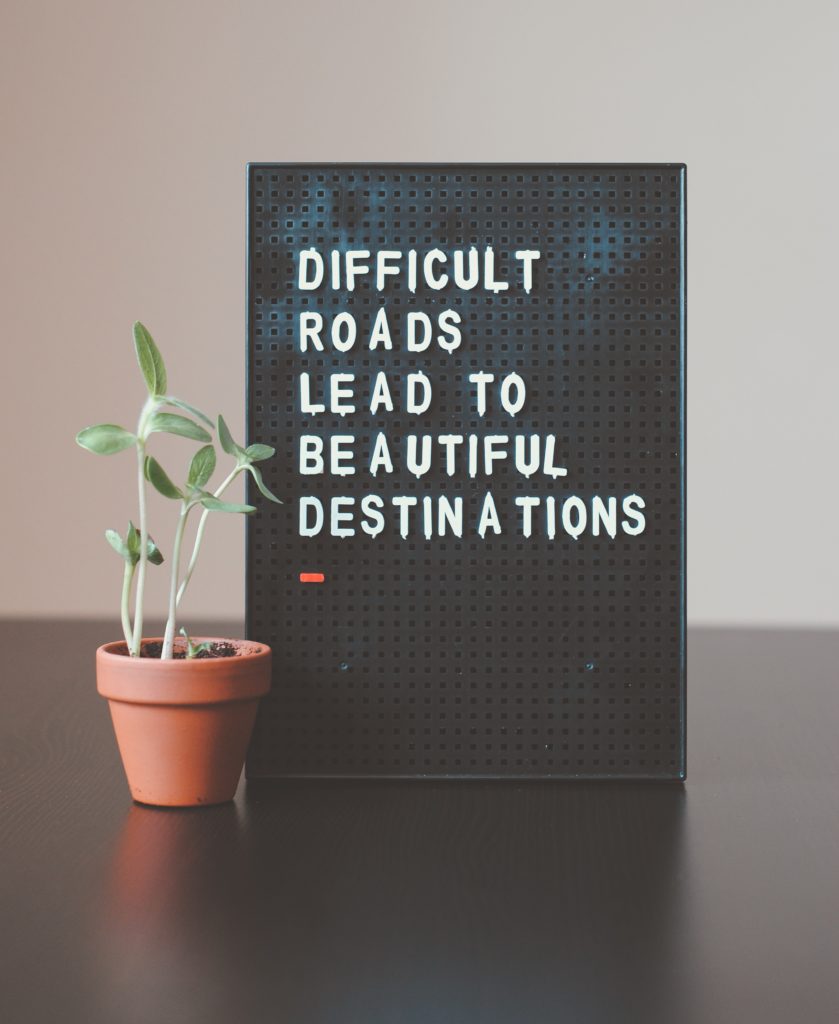Happy February, lovers! Can you believe we are already in month two of this decade?! Previously, I shared a few tips to help you say realize it’s okay to say no. Have you incorporated these small approaches, yet? With time and practice it becomes easier, I promise.
In this second part, I share ways for you to build on saying “No” by saying “Yes” to yourself.
Sometimes saying no to others and yes to yourself can feel “selfish” this is something you will need to look dead in the eyes and accept. The feeling may never go away, but the confidence around your decision will soothe it. Consider these ideas.
1. I know I help you, but how does this help me?

As you continue your practice of mindful living, your level of emotional intelligence will grow and evolve. You will find it easier to sift through events that require your attendance/attention and those that don’t.
A simple question I like to ask myself is ‘how does this serve me?’. It’s a good way to help differentiate the important things from the fluff.
For example, mid-week drinks with coworkers are a great opportunity to socialize, but if you know the next day you won’t be in top form, politely decline, or advise that you have to leave by a certain time.
This will help hold you accountable to make sure you don’t drink too much, stay up too late, or call in sick the next day. Putting a reminder in your phone to leave at a certain time can also help.
2. Newsflash: Contrary to popular belief, you are not the centre of other people’s world.

Your fear of experiencing FOMO makes you feel compelled to attend everything that calls on our energy and attention, but remember, the show will always go on.
Shockingly, you’re not the centre of your social circle’s world – parties will still continue if you don’t go, and there is usually another one coming up that you can attend instead.
That being said, your nephew’s birthday party is pretty important, and if you know it will require a lot of energy, make sure you account for that the night before. Missing a kid’s party because you’re too hungover is not self-care, it’s selfish.
3. You, and only you, are the source of your own joy and happiness.

How many of you have gone to retail therapy when you’re not in a great mood e.g bought a new outfit, pair of shoes, or jewelry? How did you feel? It probably gave you great joy in that moment of impulse, but then later turned to regret, right?
It’s ok, I’ve done it too.
Similar to binge-drinking after the age of 30, impulse purchases often come with a temporary high, followed by a not-so great feeling and regret. Learning to pull away from this can be difficult, but with some self-awareness and introspection, it can be done.
What works for me is picking up on the little habits that cause me to buy chocolate, or spend $100 on cloth napkins that I have absolutely no use for and are still sitting on my dresser (true story).
I literally stop myself in my tracks and ask “why am I buying this?” (sometimes out loud), and then I ask “what purpose will it serve me?
As someone who stress eats, it’s helped me move from stress eating on chocolate to stress eating on almonds. Not perfect, but better than before.
How others perceive us (or how we think they perceive us) is another habit, one that is not as easy to identify, and even harder to change.
I know I preach that I don’t care what others think about me, but I also know that there are a handful of people whose opinions mean the world to me. I have worked hard to curate this small, honored circle to include people that truly love and care for me, want the best for me, and will give me their honest opinions.
Most importantly, they do not try to impose their beliefs on me, and they respect my opinions and decisions even if they don’t necessarily agree.
Because of their support, I don’t feel like I’m held hostage when they ask me to attend an event, they don’t make me feel guilty if I’m unable to attend (because let’s be real, we all have that one friend).
4. Boundaries are so important. Why do you think countries have borders?

I’m going to level with you. Not everyone is going to be super keen that you’re no longer there around the clock at all hours of the night to drop everything and help them out when they’ve broken up with their partner/boss-turned-lover/best friend/celebrity couple/treadmill for the fiftieth time.
It’s the ones that take up the most of our energy and are least likely to let us miss something without giving an earful that are the most important ones to establish boundaries with.
Now, I’m not saying be a crappy friend and tell everyone ‘Good Riddance’ when they have a problem. But pick your battles wisely. Explain that you’re tired of hearing about the same issue over and over and offering suggestions you know will be shot down … You have the power here to take control of the situation.
Start putting your phone on silent, do not disturb, or even outside of the bedroom when you go to bed. Instil a policy of no technology during meals, or no social media at work. Your time and energy are precious and should not be taken for granted.
Do the best you can, but don’t let the reactions of others affect you. As said by the brilliant Dr. Seuss,
“Be who you are and say what you feel, because those who mind don’t matter, and those who matter don’t mind”.
Dr. Seuss
When I deleted my Facebook account almost a decade ago (yes, I was addicted), most of my friends were in disbelief and asked how they would keep in touch with me. My response? You have my phone, email, and mailing address, so use one of those.
While I did my part to stay in touch, I realized that relationships go both ways and those who truly wanted to stay in touch would find a way. People will complain about change, but eventually they adapt and evolve. And I am so grateful for the ones that did because they are amazing and I would do the same for them in a heartbeat.
5. Fool me once, shame on you. Fool me twice, shame on me.

Not everyone will be onboard with your decreased availability (because who do you think you are taking time for yourself when bestie has a pimple the morning of a big date).
It can come from an acquaintance, close family member, or your partner, which can definitely cause some internal dissonance. The best thing is to find a way to communicate your needs without trivializing theirs, with the hope the recipient understands your position.
There will be times, however, when this doesn’t happen, and it may happen more often than not. The key here is to pay attention to their reaction and the aftermath.
Those that are baffled by your perceived lack of interest might show a different side when you put your needs above theirs, and it’s not always pretty. Know that they are coming from a place of anger and/or hurt and don’t hold grudges, but don’t forget the lesson.
Bottomline, our mental health is being tested today in ways that it has never been before, which is why it is so important to continue caring for our mental states and learning to say No to others to start saying Yes to ourselves.
As always, love & light,
-s.
If you or someone you know needs help with mental health or mental illness, here are some great resources (free and 24/7):
Canada
Crisis Services Canada: 1-833-456-4566, or text 45645
First Nations and Inuit Hope for Wellness Help Line: 1‑855‑242-3310
Centre for Suicide Prevention: 1-833-456-4566
Kids Help Phone: 1-800-668-6868
USA
National Suicide Prevention Lifeline: 1-800-273-TALK (8255) or Live Online Chat at https://suicidepreventionlifeline.org/chat/
SAMHSA Disaster Distress Helpline: 1-800-985-5990 or text “TalkWithUs” to 66746
UK
Samaritans: 116 123 (free 24-hour helpline)
Men’s Health Forum: www.menshealthforum.org.uk
Share this article

Leave a Reply